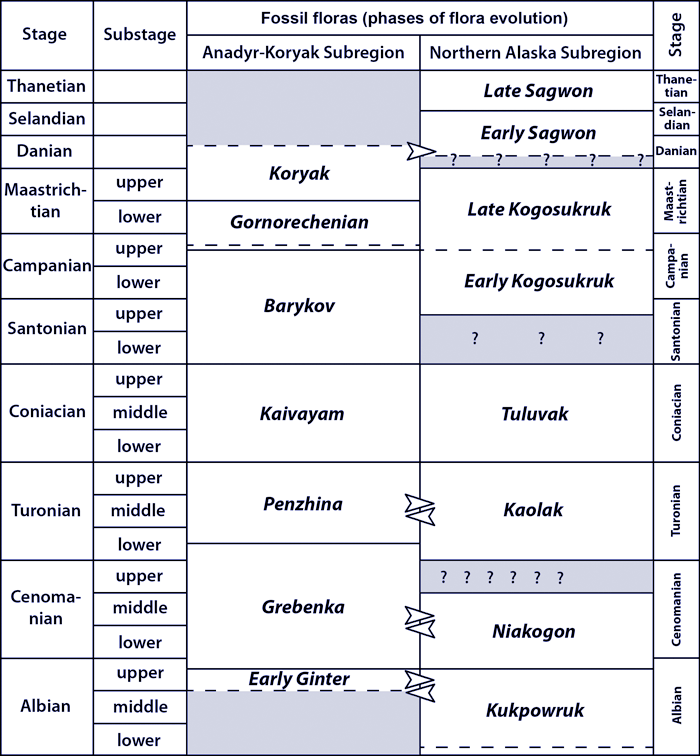Correlations
| North Pacific | AKSR-NASR | Anadyr-Koryak | Verkhoyansk-Chukotka | Okhotsk-Chukotka | N. Alaska | Yukon | Chignik |
|---|---|---|---|---|---|---|---|
| Phytostratigraphy | |||||||
This interactive correlation chart illustrates the relationships between Cretaceous to early Paleocene taphofloras in the Anadyr-Koryak Subregion (AKSR) of Northeastern Russia and the Northern Alaska Subregion (NASR) of North America. Arrows show interpreted floral interchange based on the taxonomic characteristics of the different phases in floral evolution.
|
 |
| In Albian – Paleocene time the Northern Alaska Subregion consisted of coastal lowlands and plains possessing mature drainage systems that were periodically flooded by a shallow sea. In landscape and sedimentation character, it was similar to the AKSR, being distinguishable by the presence in the NASR of the lower (?)–middle Albian plant-bearing deposits. The evolution of the Albian–Paleocene flora of the NASR may be subdivided into the Kukpowruk (?early–middle–?late Albian), Niakogon (late Albian–Cenomanian), Kaolak (Turonian), Tuluvak (Coniacian), Early Kogosukruk (late Santonian–Campanian), Late Kogosukruk (Campanian–Maastrichtian), Early Sagwon (Danian–Selandian), and Late Sagwon (late Paleocene) phases. The Kukpowruk Flora is taxomomically similar to the Buor-Kemus Flora of Northeastern Russia and can be regarded as an indicator of the synonymous regional phase in the Cretaceous flora evolution. All the late Albian–Paleocene floras of the subregion are dominated by abundant and diverse angiosperms. An exception is the Late Kogosukruk Flora dominated by conifers Parataxodium. This is probably a consequence of a cooler climate in the Maastrichtian of Northern Alaska. |
